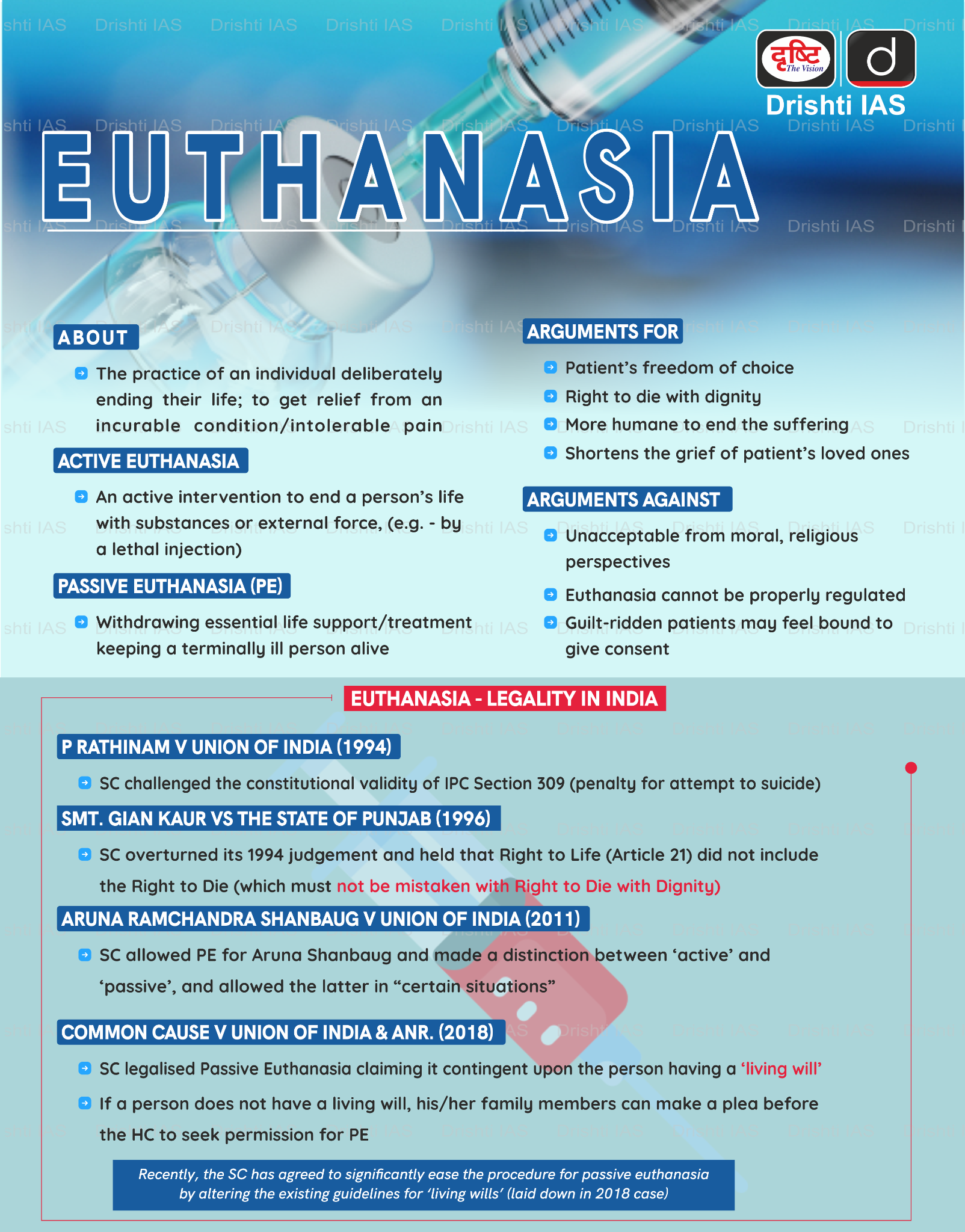Rapid Fire
Living Will and Passive Euthanasia
- 07 Jun 2024
- 2 min read
Recently, a judge serving on the Goa Bench of the Bombay High Court, registered a living will' - an advanced medical directive for his family for when he cannot make his own decisions.
- The background of "Living Wills" can be traced back to the Supreme Court ruling in the case Common Cause vs Union of India (2018).
- In 2018, the SC reaffirmed the right to die with dignity as a fundamental right under Article 21 (passive euthanasia contingent upon ‘living will’).
- Previously in 2011, the SC recognised passive euthanasia in the Aruna Shanbaug case for the first time.
- Passive euthanasia refers to the practice of allowing a person to die by withholding or withdrawing medical treatments that are necessary to maintain life.
- In 2018, the SC reaffirmed the right to die with dignity as a fundamental right under Article 21 (passive euthanasia contingent upon ‘living will’).
- In 2023, the Supreme Court eased the process for passive euthanasia by changing certain existing guidelines for living wills. According to the guidelines, a person who wants to make a “living will" must draft it as per the reference format in the presence of two witnesses.
- The will then has to be duly certified by a gazetted officer or a notary and forwarded to the main Mamlatdar of the taluka, who shall then send it to the nodal officer appointed by the District Collector for safe custody.
Read More: SC Eases Norms for Passive Euthanasia







